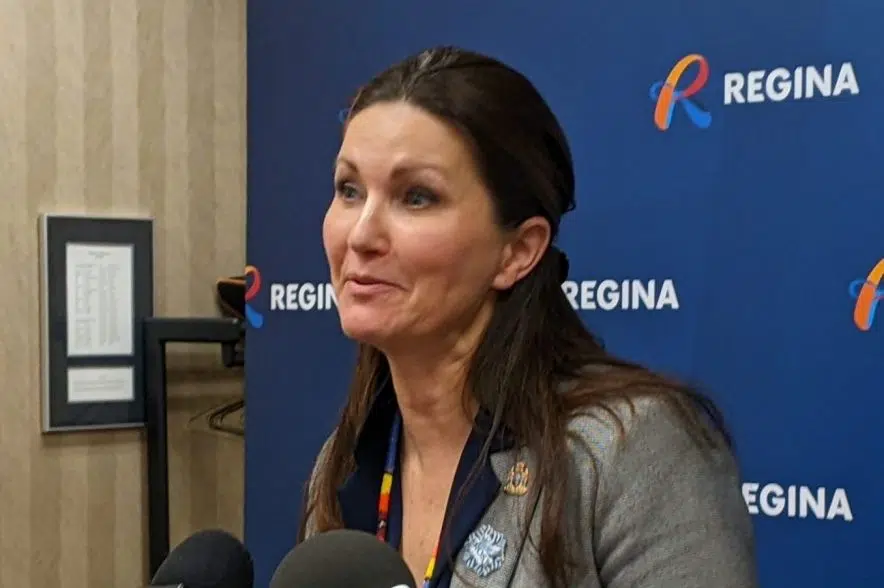Members of Regina city council were very happy with news they received at Wednesday’s meeting.
On Dec. 22, the federal and provincial governments notified the city that it was eligible to receive up to $9.4 million in funding to help support housing and transit-related “shovel-ready” projects.
The two levels of government are splitting the cost of the bill.
Last week, an executive committee recommended the money be used for the following projects:
- $3 million towards a non-vehicular trail system which will support connectivity to downtown Regina;
- $1.065 million to support shovel-ready intensification projects;
- $400,000 towards the installation and upgrading of transit shelters and concrete pads to improve the accessibility of transit shelters;
- $1 million for required infrastructure upgrades to support the development of the new YWCA;
- $1 million for infrastructure upgrades at the old Taylor Field site to support housing development; and
- $3 million for the purchase of a building that will be transformed into an Indigenous-led Emergency Wellness Centre.
“We’re incredibly grateful. What a huge win for the City of Regina,” Mayor Sandra Masters said during a news conference Wednesday. “Honestly, it felt like Christmas, (I’m) not going to lie.
“When you’re looking at a budget, this kind of money actually allows for projects that you could either build on from an infrastructure perspective or actually add to the vibrance or accessibility within your city. Even bus shelters, to be able to build those concrete pads in the highest-use areas, that’s important. It’s important for comfort and folks with limited mobility to get around.”
To be clear, none of the money has been forwarded to projects that have officially been given the green light by council, but there’s been plenty of discussion around them through the city’s Catalyst Committee.
“The reason they’re shovel-ready is because there’s a lot of work and a lot of conversations that are going on already about all of these things,” Masters noted.
The projects getting the most funding are a potential pedestrian walkway to connect areas of downtown and the Indigenous-led Emergency Wellness Centre.
While work is still in progress, Masters would one day like to see a walking path that could link Mosaic Stadium and downtown.
As for the wellness centre, Masters feels that’s a project further down the road.
“We wanted to make sure we had the money earmarked. If we find a property, I think we want to ensure that we have our hands on something by August or September of this year,” she said.
“If agreements haven’t been worked out, at least we have a space for an emergency shelter over winter. Where it could go? Those are a bunch of details to work out.”
Masters’ motion to remove LeBlanc from community safety board
At Wednesday’s meeting, Masters submitted a notice of motion to council which asked members to consider removing Coun. Dan LeBlanc from the community safety board.
The motion raised by Masters is to be reconsidered at council’s next meeting on Feb. 8.
The tension between Masters and LeBlanc dates back to November, when LeBlanc filed a lawsuit against city manager Niki Anderson because she didn’t specifically set aside funding in the proposed budget for ending homelessness.
The lawsuit was eventually thrown out in court, but it caused anger among council after Masters and other members of council threw their support behind Anderson.
While LeBlanc will have to wait a couple weeks for his fate to be decided, he spoke about the situation Wednesday for the first time since it was confirmed Masters would be filing a motion seeking to remove him from the board.
“I’ve been consulting with community over the last few days and the main thing I’m hearing back from them is the motion isn’t about me, it’s about the community and minimizing the voices of people with lived experiences of social issues like houselessness,” LeBlanc explained.
“It’s not the way I wish things went. I wish we could talk about houselessness rather than internal squabbling about houselessness, but we are where we are and I’m hopeful that once it’s done, whatever the result, that we’ll get back to the real issues.
“As we speak now, there are folks in tents dying of fentanyl overdoses and that sucks and the city can and should be doing something and more than we have been. That’s the real issue and I call it a distraction.”
Asked why she filed the notice of motion, Masters said it was a result of feedback she had received.
“I brought the motion forward based upon numerous discussions with members of the community, discussions that were had during the lawsuit and after the lawsuit, (and) feedback from the community …,” she said.
“I will not get in front of council on this. If the matter doesn’t get reconsidered, then there is no debate and I won’t debate it in the public sphere and get in front of council. Council as a body makes these decisions. Council as a body will make the next decision.”
Cowessess First Nation buys land for future health centre
Council approved the sale of a piece of land to Cowessess First Nation, which could use the land to build an urban Indigenous health centre in Regina.
The land purchased was small as the city owned a back alley between Angus and Albert streets.
Masters had nothing but praise for council’s decision.
“Through (the First Nation’s) treaty land entitlement money, they’ve been investing and amassing the land on that block. That sale of that lane and lane closure allows them now to have ownership of the complete block. They’ll be applying for urban reserve status,” she explained.
“I signed a letter of support for that some time ago. It would be a very exciting venture for Indigenous ways (for) treating folks here in the city. It would be pretty incredible. It’s going to be an amazing project if it goes ahead.”







